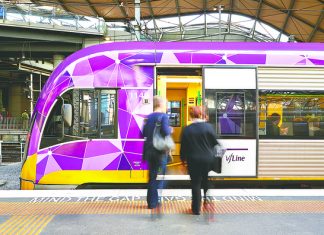
Alyssa Fritzlaff
GIPPSLAND Primary Health Network (PHN) has launched a new suicide prevention campaign.
The campaign, Stories are Strong, features inspiring stories of hope and recovery, as well as expert advice and resources.
PHN’s work on the campaign has been informed by interviews with a diverse group of people, each who have lived experience of suicide and experts in the field.
Stories are Strong, is aimed at helping people become more compassionate, wise and resourced to understand suicide said Gippsland PHN chief executive officer Amanda Proposch.
“The Stories Are Strong articles provide inspiring and positive messages of hope and recovery that showcase the strength, resilience and connectedness of our diverse community,” she told The Express.
“It is for community, employers, mothers, fathers, brothers and sisters.
“Each story and interview overwhelmingly reinforces themes that you are never alone, there is always someone you can talk to and there is a path to recovery with resources and support.”
Ten stories of lived experience are included in the campaign, four interviews with experts in the field, and four resource sheets.
One story included is from Barkindji man Sam Weston, who did 169 push-ups every day for two weeks in preparation for the Push-Up Challenge.
Each individual push-up was for every Aboriginal and Torres Strait Islander person who lost their life to suicide in 2018.
“I’ve got anxiety and depression,” Sam said.
“Everyone has issues to deal with, but for me, it’s been a big part of my life. So, I took on the push-up challenge to raise funds for mental health. It’s pretty meaningful to be able to do something for others.”
Lifeline Gippsland assisted PHN with the formation of the campaign.
Chief executive officer Michelle Possingham said that is just as important to seek help for mental health as it is for physical health.
“Just as we all have physical health, we all have mental health, and there are times when we need to reach out to someone to get physical or mental health back on track,” she said.
“It’s a natural part of the human experience to have times when we feel down, anxious or overwhelmed. If we can come together as a community to support each other, we will have a safer community and ultimately communities that are suicide-free.”
Ms Possingham said that sharing personal stories through the campaign would help promote important messages and decrease the stigma surrounding suicide.
“For years people were fearful about talking about suicide because there was a misconception that talking about it might encourage someone to act on their thoughts,” she said.
“Research tells us that this is not the case, and that sharing stories can help people to better understand the resources available to them and encourage them to reach out for support.
“We are proud of Gippsland, and the way that our community responds and reaches out to those around them that they know are struggling. The Stories Are Strong campaign will help to further promote this, and break down barriers such as stigma that may prevent people from reaching out for support.”
The Stories are Strong webpage can be visited through this link: https://gphn.org.au/about-us/stories-are-strong










